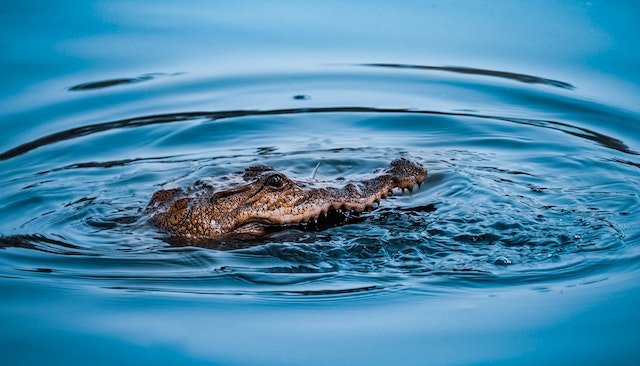Nature's beauty and diversity often captivate us, but it's crucial to remember that the wild can be unpredictable and potentially dangerous. One of the most feared predators in aquatic ecosystems is the crocodile. Found in various regions around the world, crocodiles are powerful and stealthy creatures. If you ever find yourself in crocodile territory, it's essential to be prepared and educated on how to protect yourself from a potential attack. In this blog, we'll provide you with valuable insights and strategies to increase your chances of survival in crocodile-prone areas.
1. Know Your Environment
The first step in staying safe around crocodiles is to be aware of their habitats. Crocodiles can be found in freshwater environments like rivers, lakes, and swamps, as well as coastal areas like estuaries and mangrove swamps. Be cautious when entering or navigating these areas, and avoid swimming in unfamiliar waters.
2. Avoid Risky Behavior
Crocodiles are attracted to movement and activity in the water. Avoid swimming, wading, or playing near the water's edge, especially during the night when crocodiles are most active. Additionally, do not provoke or feed crocodiles. Feeding them can alter their behavior and make them associate humans with a potential food source, increasing the risk of an attack.
3. Maintain a Safe Distance
If you spot a crocodile, maintain a safe distance. Crocodiles are fast swimmers and can move quickly over short distances. Never approach a crocodile on land or in the water. If you're on a boat, keep a safe distance from the water's edge, as crocodiles can jump out of the water to catch prey.
4. Be Cautious Around Nesting Sites
Female crocodiles are fiercely protective of their nests and offspring. Approach nesting sites with extreme caution, as a mother crocodile will aggressively defend her young if she perceives a threat. If you see signs of nesting activity, such as tracks or nests, avoid the area altogether.
5. Travel in Groups
When exploring crocodile habitats, it's safer to travel in groups. Larger groups tend to make more noise and movement, making it less likely for crocodiles to approach. If you're alone, be particularly vigilant and avoid becoming isolated near water.
6. Stay Vigilant During Breeding Season
Crocodile breeding season can be a particularly dangerous time to be around these creatures. During this time, crocodiles are more territorial and aggressive. Be extra cautious and avoid areas where crocodile breeding activity is known to occur.
7. Carry Protective Gear
If you're planning to be in crocodile-prone areas, consider carrying protective gear such as pepper spray or noise-producing devices. These items can deter crocodiles from approaching you.
8. Educate Yourself on Local Wildlife
Learn about the species of crocodile that inhabit the area you're visiting. Different types of crocodiles have varying behaviors and habits. Understanding their behavior can help you make informed decisions about where and when to venture into their habitats.
9. Responding to an Attack
In the unfortunate event that a crocodile attacks you, fight back aggressively. Aim for the sensitive areas such as the eyes, nose, and throat. The goal is to deter the crocodile and create an opportunity to escape. Once free, seek medical attention immediately, as crocodile bites can lead to severe infections.
Conclusion
While crocodile attacks are rare, being prepared and knowledgeable about these creatures can significantly increase your chances of staying safe. Remember to respect their habitats and behaviors, and always prioritize safety over curiosity. By following these guidelines, you can enjoy the wonders of the natural world while minimizing the risks associated with encountering crocodiles.

